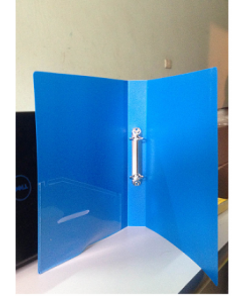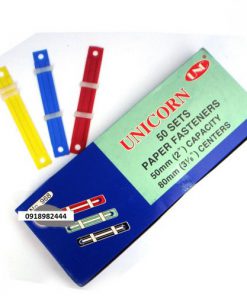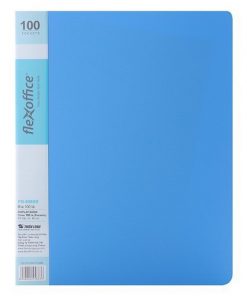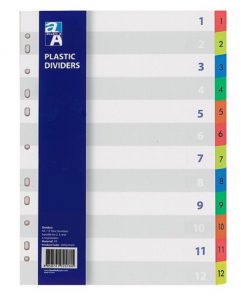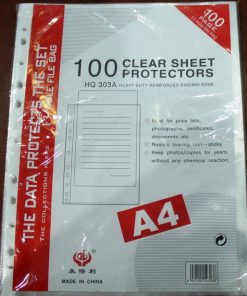English Corner
20 Words to Improve Your Vocabulary and more
If you want to speak and write English more accurately, learning new and powerful vocabulary is essential. This guide will give you 20 words to improve your vocabulary along with clear meanings, practical examples, and tips on how to use them confidently in real life. Whether you are a student, a professional, or simply someone who loves learning languages, mastering these terms will help you sound more fluent and intelligent.
English vocabulary is huge and full of interesting expressions. When you learn the right words, you can express your feelings, support your ideas, and communicate clearly in any situation. Let’s upgrade your English step-by-step with these effective and useful words.
Why Expanding Vocabulary Matters
Vocabulary is not just about knowing words — it’s about being able to communicate your thoughts effectively. Here’s what a strong vocabulary can do for you:
- Improve speaking and writing skills
- Boost self-confidence
- Help you perform better in school or work
- Make conversations more engaging and meaningful
- Enhance reading comprehension
By learning only 20 useful words each week, your vocabulary will grow rapidly. And with these selected words, you can start right now!
20 Powerful Words to Improve Your Vocabulary
Below are 20 versatile and impactful English words that are great for everyday communication. Each word includes:
- Definition
- Part of speech
- Sentence examples
- Tips for using it in conversation
Let’s begin your vocabulary journey!
-
Acknowledge (verb)
Meaning: To accept or admit that something is true.
Example: She acknowledged her mistake and apologized.
Tip: Use it to sound more polite when admitting something.
-
Ambitious (adjective)
Meaning: Having a strong desire to succeed or achieve goals.
Example: He is an ambitious student who always tries his best.
Tip: Great for describing motivation or personal goals.
-
Cautious (adjective)
Meaning: Careful to avoid danger or mistakes.
Example: Be cautious when crossing the busy street.
Tip: Perfect for advice or safety instructions.
-
Clarify (verb)
Meaning: To make something easier to understand.
Example: Could you clarify what you mean by “special project”?
Tip: Useful in professional discussions.
-
Compassion (noun)
Meaning: A feeling of sympathy and concern for others.
Example: The nurse showed compassion toward her patient.
Tip: Often used when talking about kindness.
-
Confident (adjective)
Meaning: Feeling sure of yourself and your abilities.
Example: She is confident about her presentation.
Tip: Good for describing personality traits.
-
Consistent (adjective)
Meaning: Doing something regularly without changing.
Example: To learn a language, you must be consistent in practice.
Tip: Often paired with “effort,” “results,” or “performance.”
-
Contribute (verb)
Meaning: To give help, ideas, or resources to something.
Example: Every student contributed to the group project.
Tip: Common in teamwork or charity contexts.

-
Enthusiastic (adjective)
Meaning: Showing great interest or excitement.
Example: She is enthusiastic about learning English.
Tip: Excellent for speaking positively about hobbies or activities.
-
Evaluate (verb)
Meaning: To judge or assess something carefully.
Example: The teacher will evaluate your assignment tomorrow.
Tip: Common in school and work environments.
-
Flexible (adjective)
Meaning: Able to change or adapt easily.
Example: He has a flexible schedule and can work anytime.
Tip: Great for job interviews.
-
Grateful (adjective)
Meaning: Feeling thankful and appreciative.
Example: I’m grateful for your support and friendship.
Tip: Strong emotion word for polite communication.
-
Influence (noun / verb)
Meaning: The power to affect someone’s thinking or behavior.
Example: Social media has a huge influence on young people.
Tip: Works in many situations: media, politics, education.
-
Motivation (noun)
Meaning: The reason why someone acts or works hard.
Example: His biggest motivation is to make his parents proud.
Tip: A key word for success and encouragement.
-
Opportunity (noun)
Meaning: A chance to achieve something.
Example: Studying abroad is a great opportunity to learn new things.
Tip: Often used when giving career or life advice.
-
Participate (verb)
Meaning: To join in an activity or event.
Example: Many students participated in the English contest.
Tip: Good for group events and school activities.
-
Responsible (adjective)
Meaning: Being trustworthy and doing what you must do.
Example: Children should learn to be responsible for their actions.
Tip: Frequently used at work or home.
-
Respectful (adjective)
Meaning: Showing politeness toward others.
Example: Always be respectful when talking to elders.
Tip: Useful for describing behavior and manners.
-
Significant (adjective)
Meaning: Very important or noticeable.
Example: There was a significant improvement in her English level.
Tip: Often used in academic settings.
-
Supportive (adjective)
Meaning: Giving help and encouragement.
Example: His family is always supportive of his decisions.
Tip: Excellent for expressing positive relationships.
How to Practice These 20 Words Daily
Learning new vocabulary is easier when you practice consistently. Here are simple ways to remember and use these 20 words to improve your vocabulary:
✔ Write sentences using each word
Create your own examples based on your life.
✔ Speak the words in conversation
Try to use at least 3–5 new words every day.
✔ Read books, articles, and blogs
You will notice these words in many contexts.
✔ Review weekly
Repetition helps move words into long-term memory.
✔ Use flashcards or apps
Digital tools make learning more fun and interactive.
If you learn just a few words each day, your vocabulary will improve faster than you think!
Read more: Top stationery brands world-wide for the year 2026
Extra Synonyms to Boost Your Vocabulary Further
To help expand your understanding, here are synonyms for the 20 premium words above:
| Word | Similar Words |
| Acknowledge | Admit, recognize |
| Ambitious | Determined, driven |
| Cautious | Careful, alert |
| Clarify | Explain, simplify |
| Compassion | Kindness, empathy |
| Confident | Self-assured, bold |
| Consistent | Stable, regular |
| Contribute | Donate, provide |
| Enthusiastic | Excited, eager |
| Evaluate | Judge, assess |
| Flexible | Adaptable, adjustable |
| Grateful | Thankful, appreciative |
| Influence | Impact, affect |
| Motivation | Encouragement, drive |
| Opportunity | Chance, possibility |
| Participate | Join, engage |
| Responsible | Accountable, reliable |
| Respectful | Polite, courteous |
| Significant | Important, major |
| Supportive | Helpful, caring |
Using synonyms keeps your communication rich and diverse.
You may also like: Are you looking to improve your English everyday?
Tips to Learn Vocabulary Faster (20 Words to Improve Your Vocabulary)
Here are some bonus strategies to help you learn effectively:
- Connect meanings to real life — relate a word to your own experiences.
- Group words by topic — for example, school, personality, or work.
- Say the words out loud — improves pronunciation and memory.
- Make learning fun — turn words into games and quizzes.
- Teach others what you learn — explanation reinforces understanding.
The more you engage with vocabulary, the more confident you become in any English situation.
Short Quiz: Test Your Learning!
Choose the correct word:
- She is always ______ about her future goals.
(A) cautious (B) ambitious (C) grateful - We must ______ the results before making a plan.
(A) evaluate (B) influence (C) support - I feel very ______ for your advice.
(A) significant (B) respectful (C) grateful - Please ______ your answer so everyone understands.
(A) clarify (B) contribute (C) participate - This is a great ______ to improve your skills.
(A) opportunity (B) compassion (C) motivation
Answers: 1-B, 2-A, 3-C, 4-A, 5-A
Frequently Asked Questions (20 Words to Improve Your Vocabulary)
- How can I remember these 20 words permanently?
Use them daily in writing and speaking. Repetition builds long-term memory.
- Are these vocabulary words for beginners or advanced learners?
They are intermediate-level words perfect for students who want to sound more fluent.
- How many new words should I learn in a week?
Even 20 new words every week can show big improvement over time.
- Can these words help me in exams or job interviews?
Yes! These are top-quality vocabulary words used in professional and academic settings.
- How do I use vocabulary naturally?
Practice with real-life examples, conversations, and writing exercises.
Conclusion: Start Using These 20 Words Today!
Learning vocabulary does not need to be stressful. With a good list like these 20 words to improve your vocabulary, you can speak more confidently and express yourself more clearly. The important thing is staying motivated and practicing consistently.
You now have:
- 20 practical English words
- Clear definitions and examples
- Synonyms to expand your knowledge
- A quiz to check your learning
- Tips to build vocabulary faster
Start by choosing 3–5 words each day and using them in real conversations. Soon, you will notice a big difference in how you communicate!
Tag: for adults, PDF, with meaning and sentence, In English, skills.
Read more:
Differences between Vietnamese culture and others
Malaysia and Thailand: Which one is cheaper for tourists?



